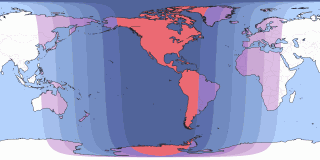Mar 14, 2025 at 3:58 am
Max View in Rothera Research Station
| Global Event: | Total Lunar Eclipse |
|---|---|
| Local Type: | Total Lunar Eclipse, in Rothera Research Station |
| Begins: | Fri, Mar 14, 2025 at 12:57 am |
| Maximum: | Fri, Mar 14, 2025 at 3:58 am 1.178 Magnitude |
| Ends: | Fri, Mar 14, 2025 at 7:00 am |
| Duration: | 6 hours, 3 minutes | All times shown on this page are local time. |
Eclipses and Transits Visible in Rothera Research Station
| Eclipse Visibility From Rothera Research Station | Visibility Worldwide | ||
|---|---|---|---|
| Sep 17–18, 2024 Partial Lunar Eclipse | Partial Lunar Eclipse |  | |
| Oct 2, 2024 Partial Solar Eclipse | Annular Solar Eclipse |  | |
| Mar 14, 2025 Total Lunar Eclipse | Total Lunar Eclipse |  | |
| Sep 21, 2025 Partial Solar Eclipse | Partial Solar Eclipse |  | |
| Feb 17, 2026 Partial Solar Eclipse | Annular Solar Eclipse |  | Note: Click on the date link for details in Rothera Research Station, or the path map image for global details. Currently shown eclipse is highlighted. |
Next total solar eclipse visible in Rothera Research Station
Next annular eclipse visible in Rothera Research Station
